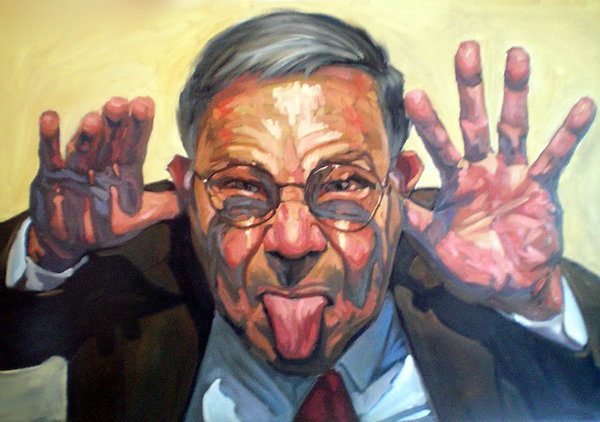The more connected Christians become with Jesus, the more their hearts will burn with empathy for other people. But that doesn’t necessarily mean they get nicer. When you love people, you burn with wrath against their abusers and mockers. Jesus wasn’t nice to people. He was fiercely protective of the people he loved and brutally vicious against those who attacked them.
Right now, there are many sincere Christians in our country who have very different understandings of whom they are supposed to fiercely empathize with. Is it your white grandma who was the sweetest, humblest, most generous person you’ve ever known even though she said some shameful things about people of other races? Or is it a black transgender college student? Ideally we would be able to empathize with everybody. In practice, our empathy usually takes a tribal form. Some people receive it, and some people don’t.
The people you have claimed for your empathy will determine the enemies you’re going to struggle to view with love. Anyone who seems like they might be a threat to the people you want to protect is going to elicit scorn from you. Their smiles are going to look like smirks. Their humility will always seem disingenuous. Unless you’re able to break through the default mistrust and form authentic relationships, you’re going to interpret all of your enemies’ moves through a very cynical filter.
Though fierce empathy is commendable and incredibly important, it’s important to always recognize that the scorn you see in the other side could actually be the back side of their fierce empathy for someone else. They could be lashing out against a perceived threat to someone they love fiercely. Love and wrath are the same force viewed from different angles. That isn’t to say that all anger and hate are valid underbellies of love, but love that utterly lacks wrath against perceived threats isn’t really love.
I’m inclined to fiercely empathize with anyone I perceive to be an outsider both because that’s whom I see Jesus championing in the gospels and because the outsiders accepted me when nobody else would in high school. It’s also true that I’ve found myself empathizing with very particular tribes of outsiders in my life, which have never really included white working class people (except for a phase in 10th and 11th grade when I tried to call myself a “redneck”).
Today I see in myself an elitist prejudice against white working class people, or more specifically white conservative Christians (who may or may not actually fit a class-based demographic) who have what I see as an “uneducated” theology that creates all sorts of problems.
Jesus hates my elitism just like he hates white supremacy, patriarchy, homophobia, and every other -ism. He empathizes fiercely with everyone I judge as well as everyone I empathize with. He can pull off being universally empathetic because he’s Jesus. I don’t think he wants me to stop loving the people he’s given me to love or defend them any less fiercely. But insofar as my scorn for the “uneducated” is shaped by my intellectual hubris, it is an abomination that poisons my love. Somehow there has to be a fierce empathy that is also kind to its enemies. I take a step towards that ideal reality when I try to empathize with my enemy’s empathy rather than only seeing my enemy’s scorn.
Check out my book How Jesus Saves the World From Us!
Please become a monthly patron of our campus ministry NOLA Wesley!













